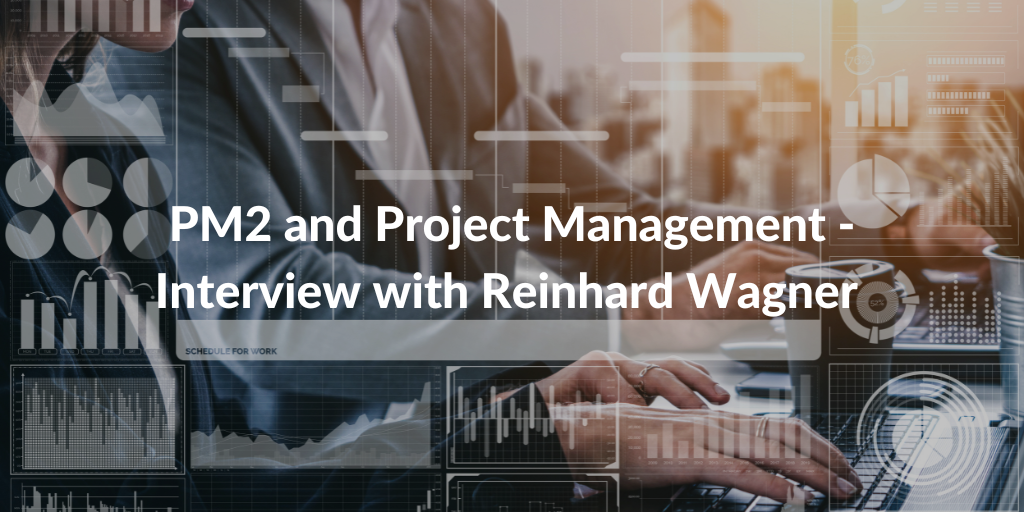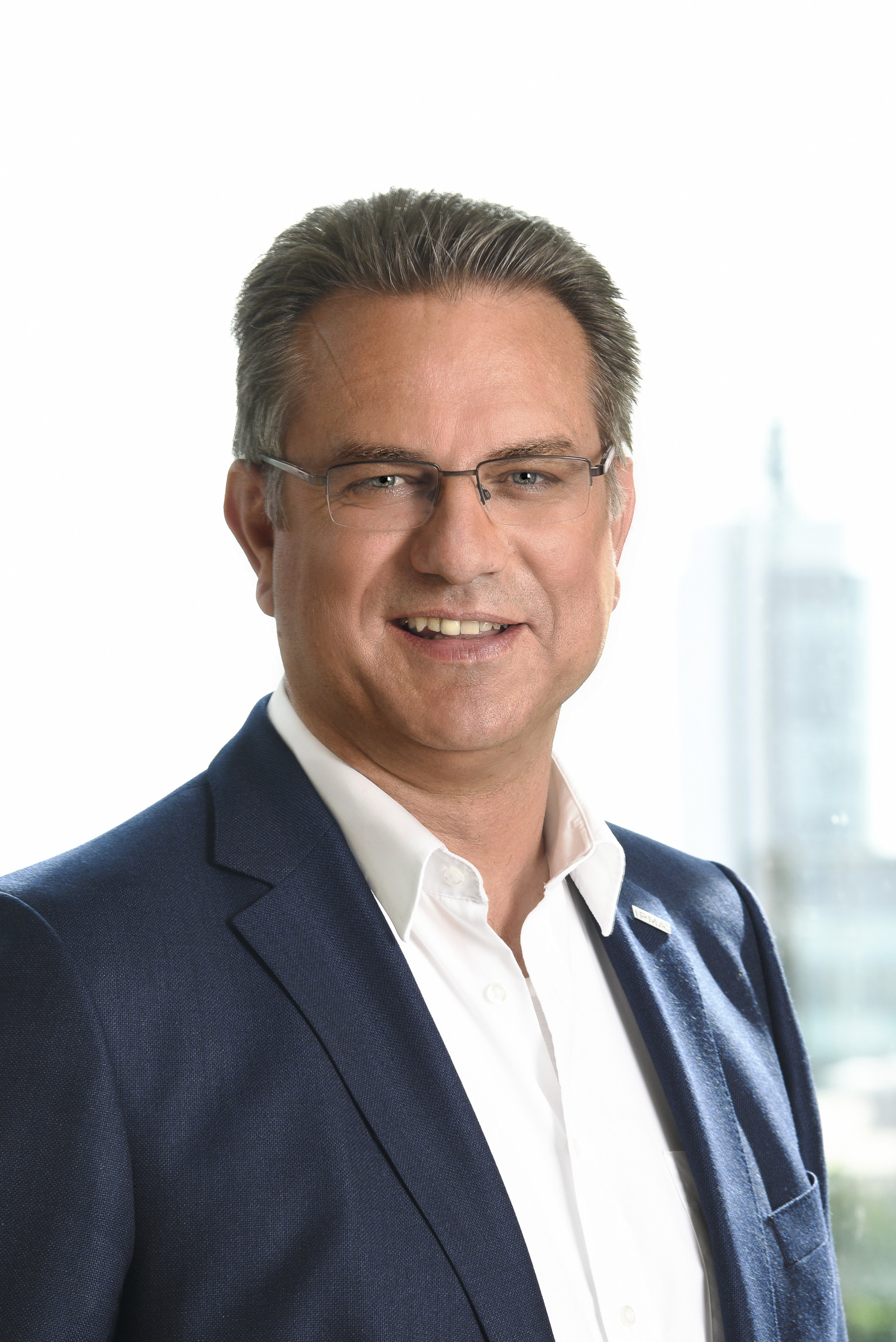We interviewed Reinhard Wagner, who has been working in the field of project-based leadership in the private, public and civil society sectors for over 35 years. As managing director of Tiba Group Services GmbH, a leading PM consulting company, we asked him why he chose PM2 as the method for many of his projects.
What’s your role?
I am the managing director of a medium-sized consulting firm (Tiba) that advises mainly industrial companies in Germany on how to manage the transformation from traditional ways of working to the world of ‘New Work’. A lot of this involves the increasing number and importance of projects, classic, agile and hybrid approaches, the realignment of the processes and change readiness on all levels of the organization.
Which are the main challenges you face in your everyday life?
On the one hand, the issue today is that conventional business models no longer work and need to be thoroughly renewed. On the other hand, the existing business must be delivered faster, more adaptively, with less resources, and with more focus on value creation.
Many organizations are increasingly overwhelmed by the need to radically transform the business in addition to their day-to-day operations, multiple external influences such as energy price spikes, disruptions in supply chains, and a shortage of skilled workers. Here in particular, it is important to have competences in project, process and change management available in order to meet the diverse challenges.
Can you give us some examples of projects in which you were involved?
We are on the move in very different areas of responsibility. On the one hand, we support automotive manufacturers and their suppliers in the transformation of the industry towards electromobility and the integration of software and hardware in a vehicle. On the other hand, we are active in complex projects and programs in the context of the energy transition in Germany, where for example there are huge projects to bring renewable energy from Scandinavia or the North Sea to southern Germany with transmission lines as well as projects for the decommissioning of nuclear power plants and the (interim) storage of nuclear material.
However, there are many other Tiba projects in areas such as consumer products, such as electric bicycles, which enjoy high demand and must be developed and manufactured under difficult market conditions in order to be sold to a demanding audience. We ourselves have now automated many of our processes in the company, with the use of Citizen Developers and tools such as PowerBI and PowerAutomate, where complex reports and cockpits are provided completely automatically with the desired information at a time and in the format of our choice. It’s amazing what digitalization, implemented through projects, has made possible.
There are multiple Project Management methodologies. What made you choose PM2 as a project management methodology?
In Germany, PM2 is still little known and widespread in its application. In this country, in contrast to other European countries, we do have a good set of DIN standards on project management since the 1960s, which has also influenced the ISO series of project management. At the same time, we in Germany are mainly aligned with IPMA in terms of competencies for project management.
The professionalization of project management has happened mainly through the adoption of project management standards and the qualification or certification of project personnel based on IPMA’s ICB 4.0. Last year, the 100,000th project manager received her IPMA certificate. Speaking in this way, I am talking primarily about the business world. In public administration, a professionalization of project management has only begun in recent years. Here in particular, interest in PM2 is growing, especially since it promises to facilitate cooperation with European institutions and – if a standard for project management is to be introduced – PM2 is the obvious choice.
What are the advantages and disadvantages of the PM2 methodology for you?
At Tiba, our philosophy is that the PM methodology must fit the organization that wants to use it in projects. PM2 is obviously the right methodology in this respect, as it is designed for the public sector and meets the character of the projects as well as the characteristics of the operating conditions. In addition to the methodology for projects, there is an agile approach as well as approaches for program and portfolio management, which are coherent and thus can be easily integrated.
A disadvantage is perhaps that PM2 primarily addresses the “hard side” of project management and less the “soft side”. In our view, a reasonable combination with the “personal and social” competences of IPMA can be established here, just as we do it in business. After all, as with any methodology, it is not enough to introduce it and expect everyone to accept and use it immediately.
Methodology must be introduced gradually, all those affected must be trained in it, and management must not only appeal for consistent application, but also monitor it in practice and change it if necessary. For this reason, more user guidance is also necessary for PM2 to become even more widely accepted.
Which part of the PM2 Project Management methodology do you apply to your projects?
A methodology only makes sense if it is applied as completely and consistently as possible. This begins with the phase model, continues with the associated artifacts, and extends to the roles and responsibilities. The latter is where we always see the greatest need for adaptation. Not so much as far as the roles themselves are concerned, but the particular design of the roles and the interaction in the specific context. This is because the organizational “trajectory”, structural and cultural peculiarities play a significant role. Particularly in the public sector, which is typically oriented toward routine and stability, project-oriented models must be used with care so as not to provoke conflicts or rejections. Even the introduction of the extensions to program and portfolio management can only take place once basic project management structures have been established.
Do you have any advice for professionals in the sector?
The introduction or advancement of a PM methodology takes place in our company on basis of the Tiba 4-axes model. This maps the holistic management of projects across the axes “People & Mindset”, “Processes & Methods”, “Technology & Tools” and “Organization & Culture”. If emphasis is placed only on the introduction of processes and methods for projects, but the other three axes are neglected, then the introduction will ultimately fail. Success can only be achieved if project management is advanced on all four axes concurrently, i.e. if project management processes and methods are aligned with the technologies and tools used, and if the organization and culture are synchronized with them as well. Ultimately, the most important factor is still missing: people. Only if the people are involved in the introduction and jointly develop a suitable (collective) mindset for the project work, the application of the other factors will be a success. Here it is important to achieve the right combination and approach.
What are your thoughts for the future of project management?
Projects will permeate all areas of life in our society and each of us will be doing projects in one form or another anytime, anywhere. In science, we call this “projectification”. Project management will no longer function according to the motto “one size fits all”, but will be adapted to the project-specific situation and circumstances. For this reason, IPMA introduced the competence “project design” a few years ago, i.e. the design of project management by the project manager on the basis of the specific conditions. In the future, we will also need a project management approach that can be grasped and applied more intuitively, especially for citizens, i.e. something like “citizen project management” for the “project citizen”.
Although there are increasingly complex projects in public administration and business that require sophisticated project management, many projects in the public or civil society sector are small and straightforward. Simple procedures, in the sense of ‘project organizing’, are needed here. At the same time, software will continue to support us in the future.
Be it via Data Analytics, Robot Process Automation or PowerAutomate, large amounts of data can be analyzed and conclusions can be drawn from them for planning or controlling projects. Artificial Intelligence (AI) as well as applications like ChatGPT show first possibilities how project managers and especially PMOs can be supported in simpler tasks in order to be able to concentrate more on the really important topics of organization and collaboration.
PM2 in practice: read our interview regarding the first paperless project of the EU with pm2
QRP International is part of the PM² group and offers training in the PM² methodology. Visit our website or write to us if you would like to have more information!









